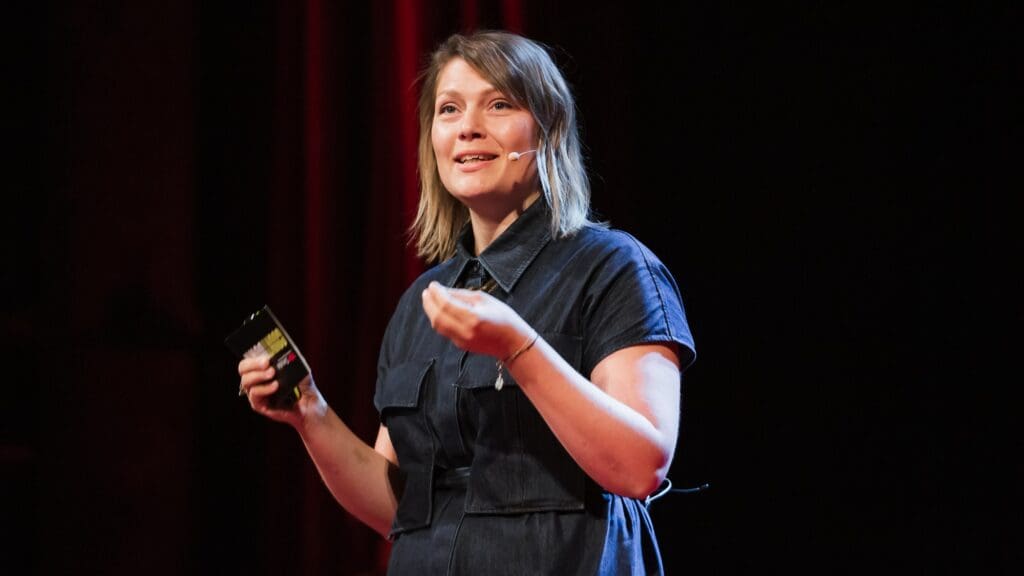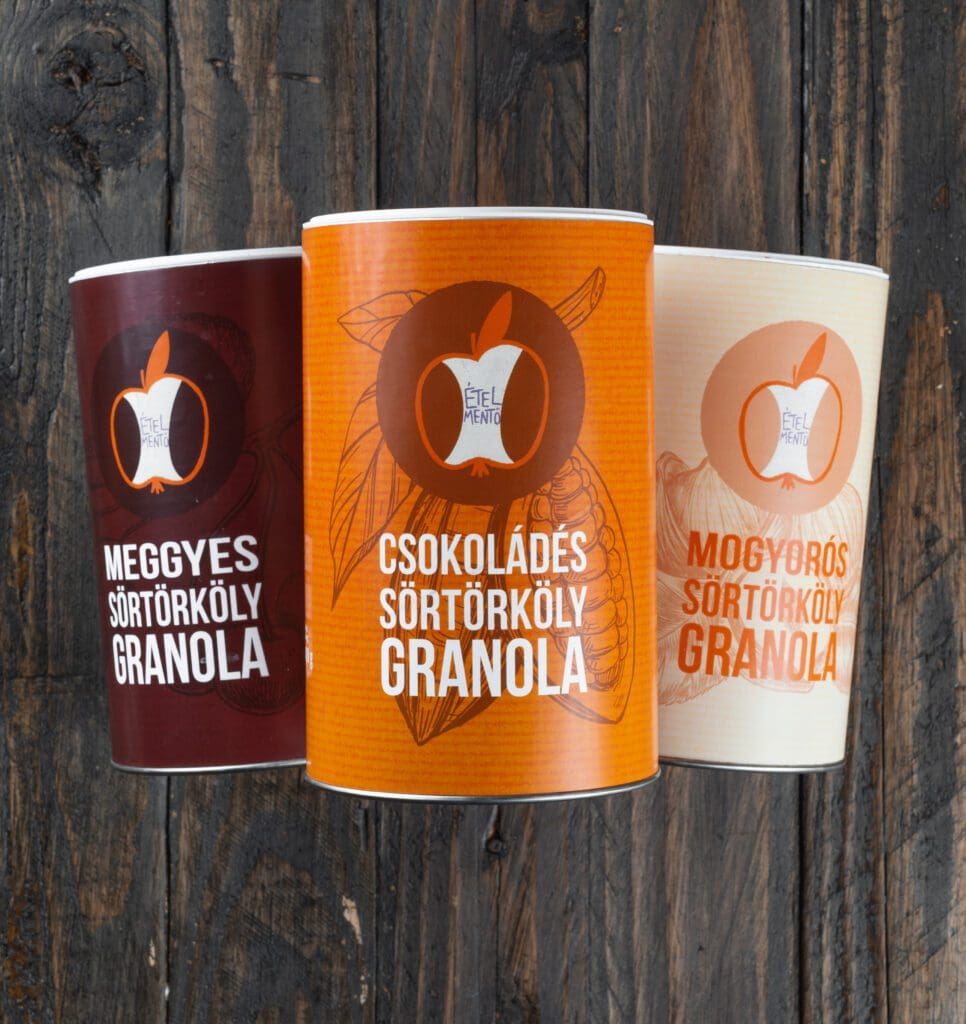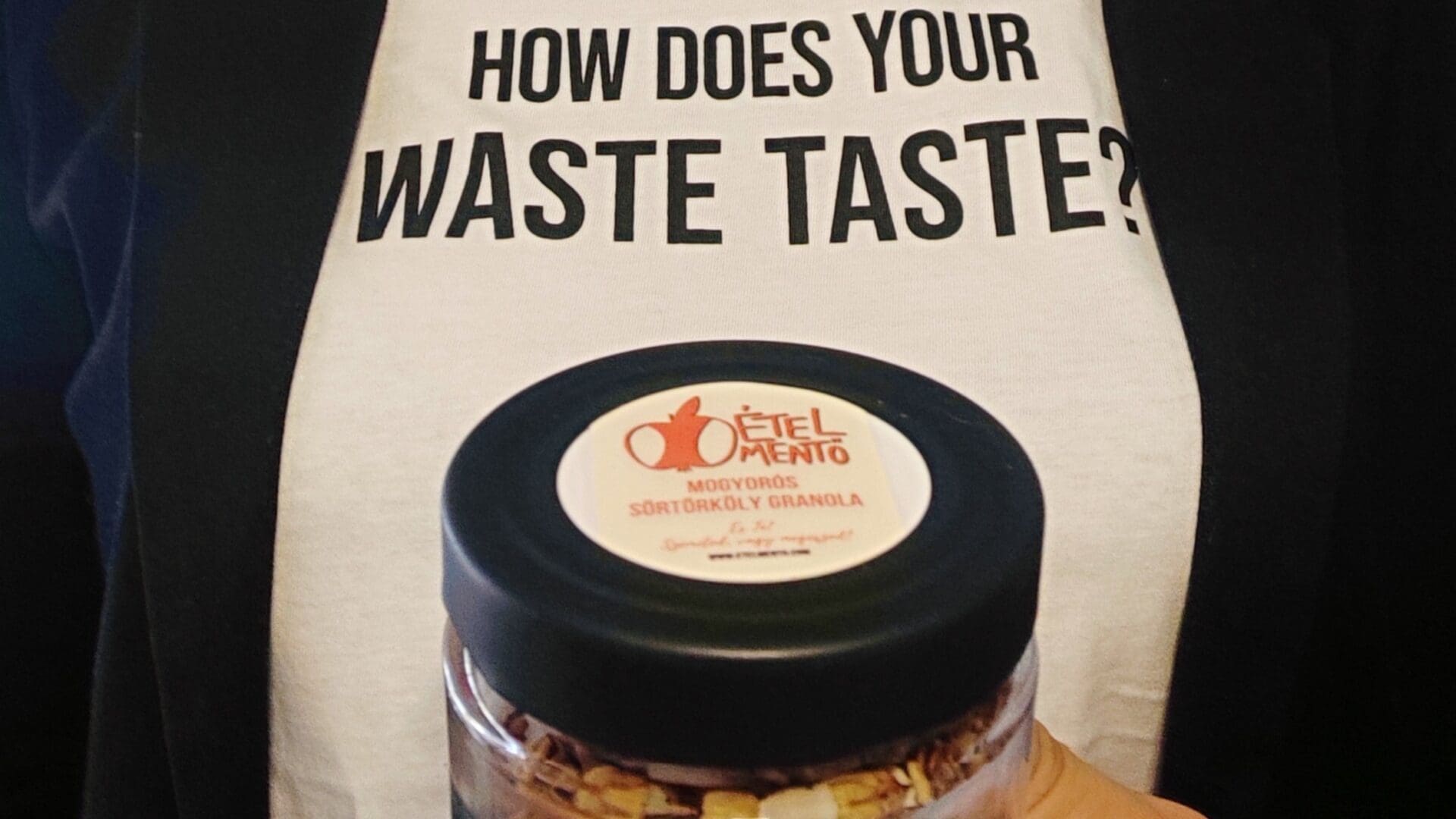The guest on the latest episode of former President of the Republic János Áder’s podcast Blue Planet was Júlia Dalmadi, the founder and leader of Ételmentő (Food Rescuer), an enterprise that produces so-called upcycle foodstuffs from food industrial by-products. Dalmadi’s company also actively promotes food waste reduction, by engaging in awareness-raising activities and continuously monitors trends, challenges, and efforts aimed at solving problems in the food industry. Dalmadi explained that food futurists like herself look beyond the present and the near future, and are speculating about what type of food will be on our plates thirty years from now.

In conjunction with the UN’s food and agriculture organization, FAO, Dalmadi also conceived the so-called Food & Climate Shaper Boot Camps, and is the ambassador of the Future Food Institute.
János Áder, who is the Chair of the Board of Directors of the Blue Planet Climate Protection Foundation, highlighted that food waste has become a fundamental challenge. Approximately one-third of the food produced in the world goes uneaten and is discarded; the phenomenon is a significant problem in Hungary as well. The question is how to save these resources and create value from food waste.
Dalmadi elaborated that although people often hear about the growing global population and the challenge of providing food for everyone, in reality, humans already produce enough food to meet the needs of everyone. The issue lies in the unequal distribution of food resources worldwide. Many have tried to find solutions to increase food production, but food production consumes a lot of land, water, and finite resources.
Az ételmentő élelmiszerfuturista
Az újrahasznosított élelmiszerek olyan összetevőkből készülnek, amelyek egyébként élelmiszerhulladéknak minősülnének, de emberi fogyasztásra még teljesen alkalmasak. A transfoodmission ezeket a tápanyagokban gazdag alapanyagokat használja fel. Dalmadi Júlia “élelmiszerfutirista” a Planet Budapest 2023 fenntarthatósági expón bemutatja a sörtörköly granolát, a kakaóbabhéjat, valamint a kávéfeldolgozásból származó mellékterméket. A szakember bebizonyítja: lehet pazarlásmentesen élni.
She pointed out that one of the reasons for food waste is that supermarket shelves are overflowing, and people often buy food just because it is on sale. Another reason is that some food items do not meet quality expectations or may not look exactly as consumers expect. Additionally, there are parts of crops and ingredients that people do not realize are nutritious and edible, leading to their disposal.
Áder suggested reviving old knowledge when it comes to preserving food. For example, dried bread or rolls can be turned into breadcrumbs, surplus meat can be used to make sausages during pig slaughter, and excess fruit can be transformed into jam or brandy. There is an entire Hungarian cultural heritage associated with this approach, as highlighted by the former President.
Dalmadi added that people also waste money when they do not use something. She emphasized that the pursuit of convenience comes at a cost, which often results of edible food ending up in the trash bin.
Regarding their first product, beer mash granola, she mentioned that beer mash, a by-product of brewing, was traditionally used as animal feed, and today it is sometimes discarded. However, the company she founded transforms it into a breakfast cereal rich in fibre, protein, and vitamin B.

She noted that the company now has many returning customers, works with an increasing number of retailers, and their granola is available in online supermarkets. There is also demand for other products made from beer mash. So Ételmentő is planning on releasing a cracker soon, so ‘from the by-product of beer brewing, beer snacks will be made.’ Furthermore, researchers of the venture are testing other by-products, such as fruit pulp, fibres, peels, seeds, and even products containing coffee grounds.
Dalmadi emphasized that their goal is not only to expand their own portfolio but also to assist other companies in incorporating upcycled food products into their portfolios.
Áder expressed his conviction that these efforts could lead to ‘an increase in quality, a wider range of options, and a reduction in food waste.’ He cited the example of winemakers in Villány have realized that grape seeds can be ground into a very healthy dietary supplement.
Dalmadi shared that Ételmentő will also be participating in the Planet Budapest 2023 Sustainability Expo, to be held in the last week of September. The representatives of the company will offer tastings, workshops, and introduce three food industry by-products while brainstorming about their potential uses.
Related articles:
Sources: Hungarian Conservative/Blue Planet/MTI







